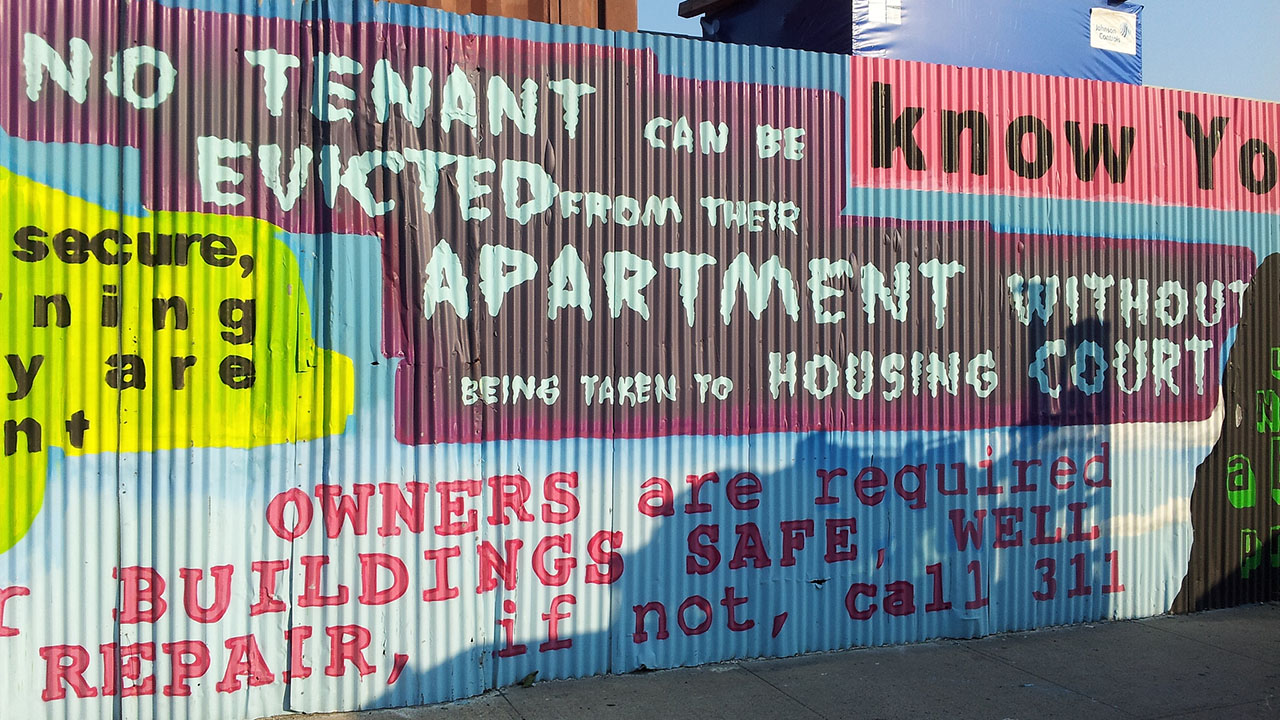A groundbreaking bill that would provide low-income tenants facing eviction with legal counsel is stalling, CityLimits reports.
Similar to the U.S. Supreme Court’s decision in Gideon v. Wainwright in 1963, which guaranteed defendants a right to an attorney in criminal cases, the Right to Counsel bill would give tenants tied up in housing court universal access to lawyers if their earnings are below 125% of the poverty level. According to the New York Times, “In many housing courts around the country, 90 percent of landlords are represented by attorneys and 90 percent of tenants are not.”
It was introduced by Councilman Mark Levine and Councilwoman Vanessa Gibson in March of last year. A majority of the city’s 51 council members have sponsored the bill, a show of support that Levine has called “unprecedented”. It has been praised by the New York City Bar Association, Council Speaker Melissa Mark-Viveretto and even Mayor Bill de Blasio. The bill could set a new precedent, too: “If passed, it would be the first such mandate in the country,” the Wall Street Journal reported.
And yet, according to CityLimits, the bill still has a long way to go:
Mark-Viverito’s office could offer no timeline for the measure reaching the Council floor. As of this writing, more than a year after its introduction, not even a committee hearing has been scheduled for it. And despite the mayor’s support for more funding for tenants in legal trouble (as well as multiplying funds for helping low-income people get representation in court), de Blasio’s office would not say if he’ll get behind the measure.
“We are reviewing the legislation, and clearly tenant representation is a significant priority for this administration,” a spokesperson from the mayor’s office said.
What’s responsible for the hold up? The mayor’s office didn’t offer any further explanation, but CityLimits suggests it has something to do with financing:
The city’s Independent Budget Office has estimated that the bill would cost somewhere between over $150 million and more than $250 million annually, but that it would also save the city some $53 million in shelter expenses.
However, advocates argue that the bill also poses economic benefits. Ted De Barbieri, Assistant Professor of Clinical Law at the Brooklyn Law School wrote in the Huffington Post:
Specifically, a recent study authored by the Boston Bar Association estimates that for every dollar spent on civil legal aid to represent individuals in housing court the government would save $2.69 in other services, including emergency shelter, health care, foster care and law enforcement. Additional reports estimate the savings to be even greater, as much as a $6 savings for every $1 spent on civil legal services.
Levine echoed similar sentiments to CityLimits, saying that the savings may very well offset the high costs.
(Photo: monkeymakermj)


